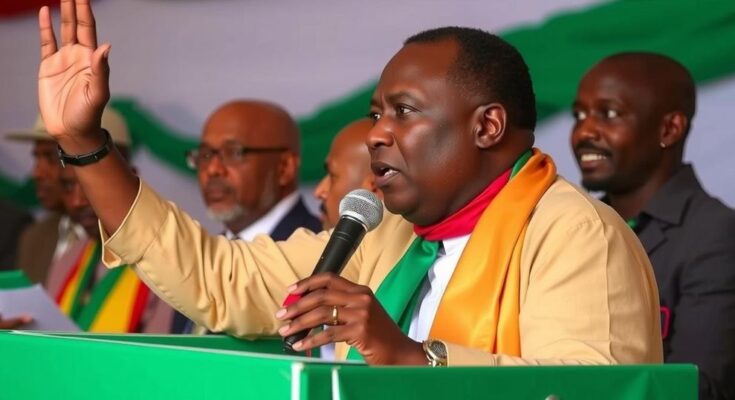Chad’s ruling Patriotic Salvation Movement won a majority in December’s parliamentary elections, securing 124 of 188 seats amid a boycott by major opposition parties. This marks the first parliamentary election in over ten years, intended to further Chad’s transition to democracy following Mahamat Idriss Déby’s military takeover. Despite a 51.5% voter turnout, the elections faced skepticism from opposition groups who labeled the process a sham, exacerbating Chad’s complicated political and security landscape.
In a significant political outcome, Chad’s ruling Patriotic Salvation Movement (PSM) has garnered a commanding majority in the parliamentary elections held in December, amidst a boycott by leading opposition factions. Provisional results indicate that the ruling party obtained 124 out of 188 parliamentary seats, reflecting a voter turnout of 51.5%. This election marks the first parliamentary vote in over ten years, subsequent to President Mahamat Idriss Déby’s military leadership following the demise of his father, long-time ruler Idriss Déby Itno. The elections were deemed a crucial step in Chad’s protracted journey toward democracy, with Déby emphasizing the potential for decentralization and local governance resources distribution. Despite this, more than ten opposition parties, including the prominent Transformers party, chose to boycott the elections, denouncing the process as lacking credibility and a mere imitation of the prior presidential election, which was similarly marred by controversy. The political climate in Chad remains tense, with ongoing security threats and shifting international alliances underpinning these electoral developments.
Chad has been under military rule since President Mahamat Idriss Déby’s ascension in 2021, following the death of his father, who had governed the nation for three decades. This transition marks a pivotal period in the country’s trajectory towards democracy, with the December elections seen as a critical component in this process. However, the electoral landscape has been overshadowed by opposition boycotts and allegations of electoral fraud that have led to concerns about the legitimacy of both the parliamentary and previous presidential elections.
In conclusion, the recent parliamentary elections in Chad signify a consolidation of power for the ruling Patriotic Salvation Movement and President Mahamat Idriss Déby, albeit against a backdrop of significant opposition boycott and claims of electoral malpractice. The implications of this election are profound, particularly with regard to Chad’s navigation through security challenges and its aspirations for decentralization and democratic governance.
Original Source: www.rfi.fr




